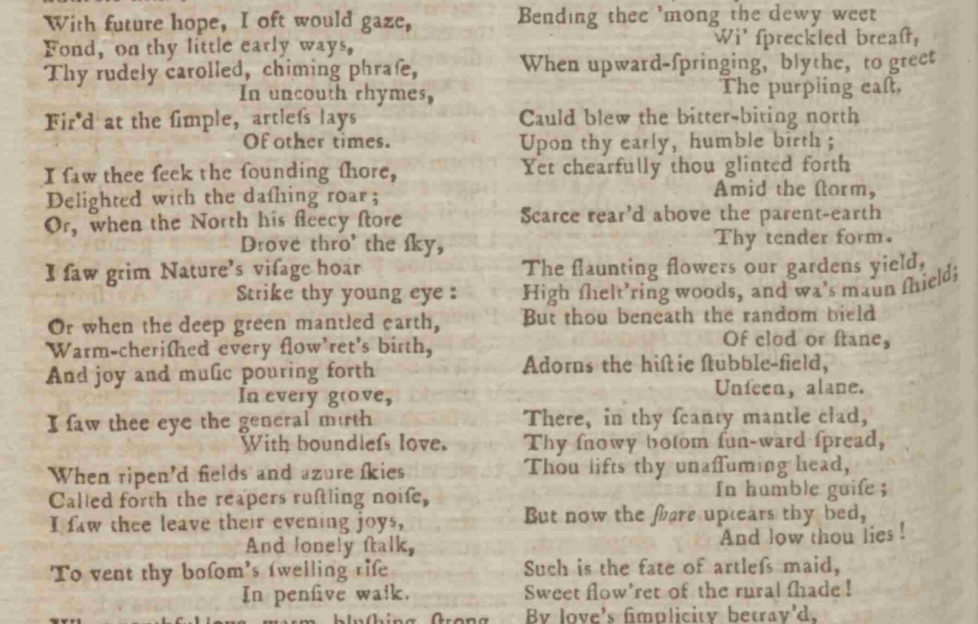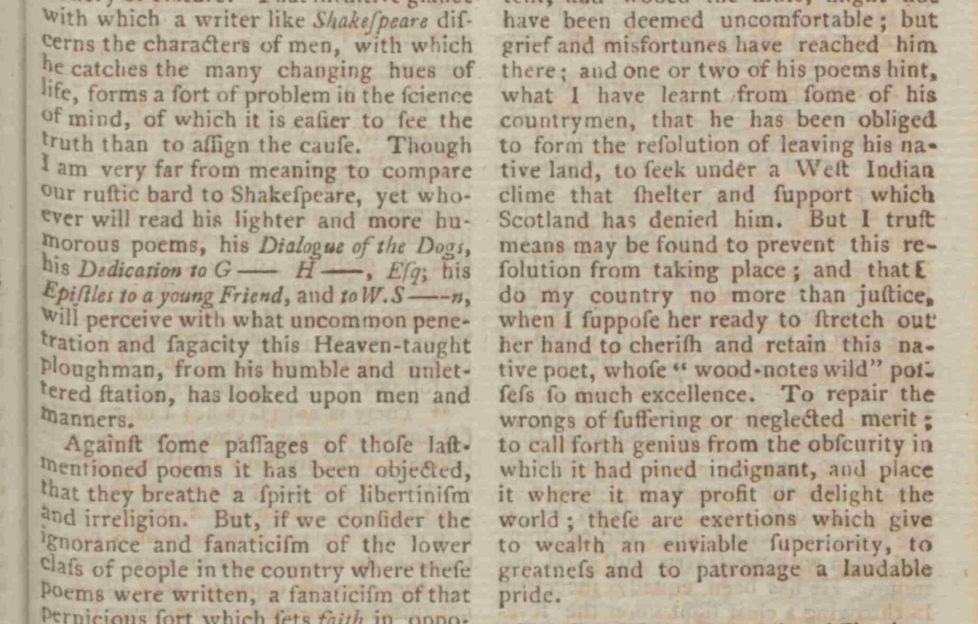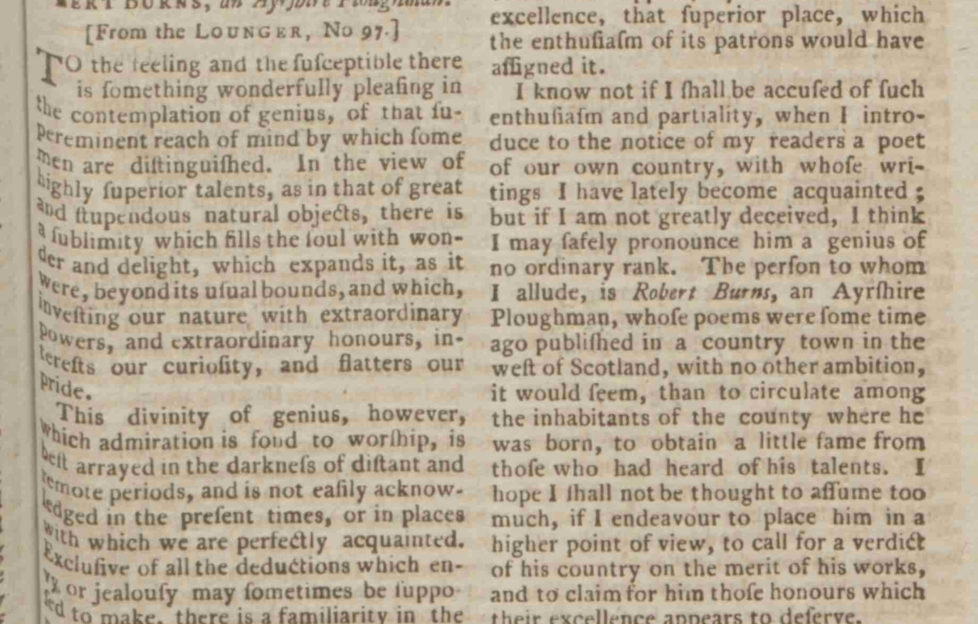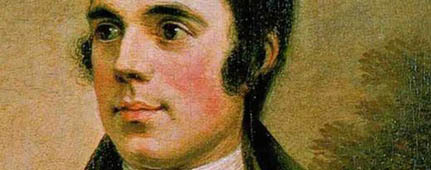1786 Burns Poetry Review
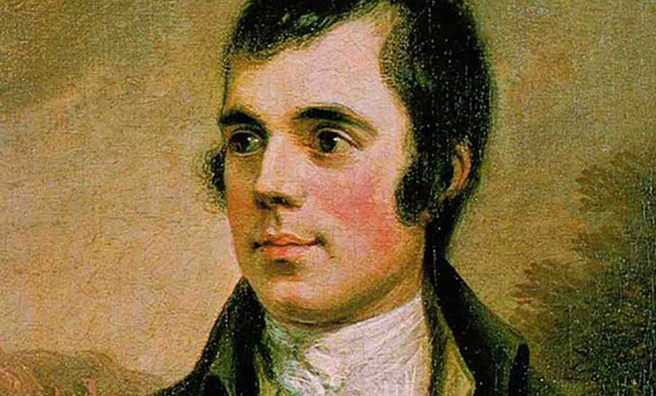
For Burns Night we’ve dug deep into our archives to find our first printed review of the poetry of Robert Burns, published in The Scots Magazine way back
in December 1786…
![]()
Surprising effects of Original Genius, exemplified
in the Poetical Productions of Robert Burns, an Ayrshire Ploughman
In the discovery of talents generally unknown, men are apt to indulge the same fond partiality as in all other discoveries which they themselves have made; and hence we have had repeated instances of painters and of poets, who have been drawn from obscure situations, and held forth to public notice and applause, by the extravagant encomiums of their introductors, yet in a short time have sunk again to their former obscurity.
I know not if I shall be accused of such enthusiasm and partiality, when I introduce to the notice of my readers a poet of our own country, with whose writings I have lately become acquainted; but if I am not greatly deceived, I think I may safely pronounce him a genius of no ordinary rank.
The person to whom I allude is Robert Burns, an Ayrshire Ploughman, whose poems were some time ago published in a country town in the west of Scotland, with no other ambition, it would seem, than to circulate among the inhabitants of the county where he was born, to obtain a little fame from those who had heard of his talents.
I hope I shall not be thought to assume too much, if I endeavour to place him in a higher point of view, to call for a verdict of his country on the merit of his works and to claim for him those honours which their excellence appears to deserve.
Burns possesses the spirit as well as the fancy of a poet.
That honest pride and independence of soul which are sometimes the muse’s only dower, break forth on every occasion in his works. It may be then that I shall wrong his feelings while I indulge my own, in calling the attention of the public to his situation and circumstances.
That condition, humble as it was, in which he found content and wooed the muse might not have been deemed uncomfortable; but grief and misfortunes have reached him there; and one or two of his poems hint, what I have learnt from some of his countrymen, that he has been obliged to form the resolution of leaving his native land, to seek under a West Indian clime that shelter and support which Scotland has denied him.
But I trust means may be found to prevent this resolution from taking place and that I do my country no more than justice when I suppose her ready to stretch out her hand to cherish and retain this native poet, whose “wood-notes wild” possess so much excellence.
To repair the wrongs of suffering or neglected merit; to call forth genius from the obscurity in which it had pined indignant, and place it where it may profit or delight the world; these are exertions which give to wealth an enviable superiority, to greatness and to patronage a laudable pride.
– Henry MacKenzie, writing for The Lounger
- Shakespeare vs Burns. Find out the similarities between the two bards at Burns Birthplace Museum.


